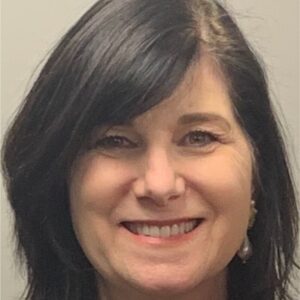Staff needs to know what residents and families want
A recent question for the Resident Sound-Off feature here on Long-Term Living asked, “What qualities or characteristics make for a good staff member who meets your needs?” Not surprisingly to us, those residents who answered mentioned friendly, cheerful, honest, considerate, nice, kind, and patient. In addition, they appreciate a staff member who greets them, checks on them, smiles, and is willing to have fun as well as establish a relationship.
This certainly confirms what other research has shown, recently in a report by My InnerView (PDF format). Residents (and families) want to be cared for by people who genuinely care about them. They want to be respected and heard. Respectful behavior toward another person means that you value them, attach importance to their history, their current needs and desires, and are open to their ideas and perspectives. It demonstrates that you appreciate them as a person.
As we have touched on in a previous column, creating a respectful environment begins with establishing respect as an expectation for all who live, work, and visit in the facility. It involves talking about respect as a group with all staff in all departments. Using examples of respectful and disrespectful situations with residents and families helps the staff to understand the expectations, what behavior and approach is desired, and what will not be tolerated.
Residents also want to form a caring relationship with staff. In forming such a relationship the residents (and families) want staff members to know them as individuals; their history, their family, their likes and dislikes. When staff takes the time to learn about each individual resident—as respectful staff members will do—care becomes more personal, less intimidating and intrusive, and more enjoyable for both the resident and the employee.
However, providing respectful and caring personal care can be time consuming and does not always occur in many assisted living and long-term care facilities, although it doesn’t have to be that way. All too often the care provided is task-oriented, not person-oriented. And that is not a staff problem—that is a facility problem. Employees follow the expectations of the organization, and when it is more important to get the job done than consider the needs of another human being, everyone loses.
Residents and families want to be cared for by appropriate numbers of educated, competent, and caring staff. If you have been following our columns over the past year, you already know we are huge proponents of an educated, informed, and supported staff. Yet all too often educating staff is not a priority and is, at best, done initially with staff left to fend for themselves afterward. An ongoing, sustainable education and support program motivates staff members, enabling them to continue to learn and grow. Staff tells us they too want this, as indicated in most satisfactions surveys.
Finally, residents and families will have concerns. They would like them to be acknowledged, addressed, and resolved. Keep in mind that most folks do not care for confrontation, and most are not comfortable with bringing up questions. As difficult as it may be for a resident or family to question your policies or routines, they have every right to know why something is done in a particular fashion, and the rationale for doing so. Teach staff to welcome questions or suggestions, and to actively seek answers. In addition, they need to follow through to resolve the concern, whether on their own or with a manager. When employees react in a defensive manor, it only serves to pull each party further from the other, and no one wins. Remember the goal for all parties should be the same: a happy, nurturing, caring, and fun environment in which to live and work.
Susan Gilster, PhD, FACHCA, NHA, Fellow, developed the Alois Alzheimer Center, Cincinnati, Ohio, which opened in 1987 as the first freestanding dementia facility in the United States.
Jennifer L. Dalessandro, BS, NHA, is the Assistant Administrator and Research Coordinator of the Alois Alzheimer Center and has helped it evolve into a person-centered facility.
For more information, phone (513) 673-1239 or visit www.careleadership.com or www.alois.com.
I Advance Senior Care is the industry-leading source for practical, in-depth, business-building, and resident care information for owners, executives, administrators, and directors of nursing at assisted living communities, skilled nursing facilities, post-acute facilities, and continuing care retirement communities. The I Advance Senior Care editorial team and industry experts provide market analysis, strategic direction, policy commentary, clinical best-practices, business management, and technology breakthroughs.
I Advance Senior Care is part of the Institute for the Advancement of Senior Care and published by Plain-English Health Care.
Related Articles
Topics: Articles , Facility management , Staffing











